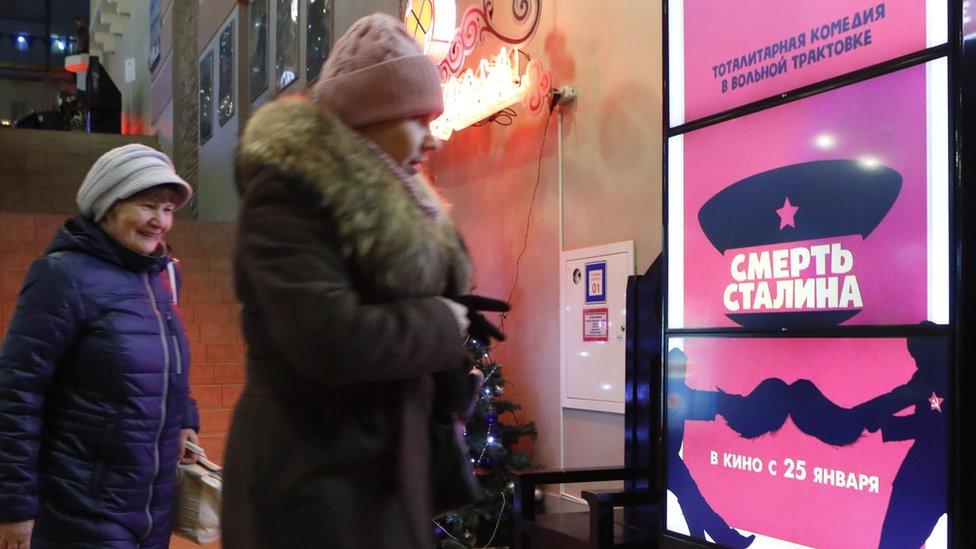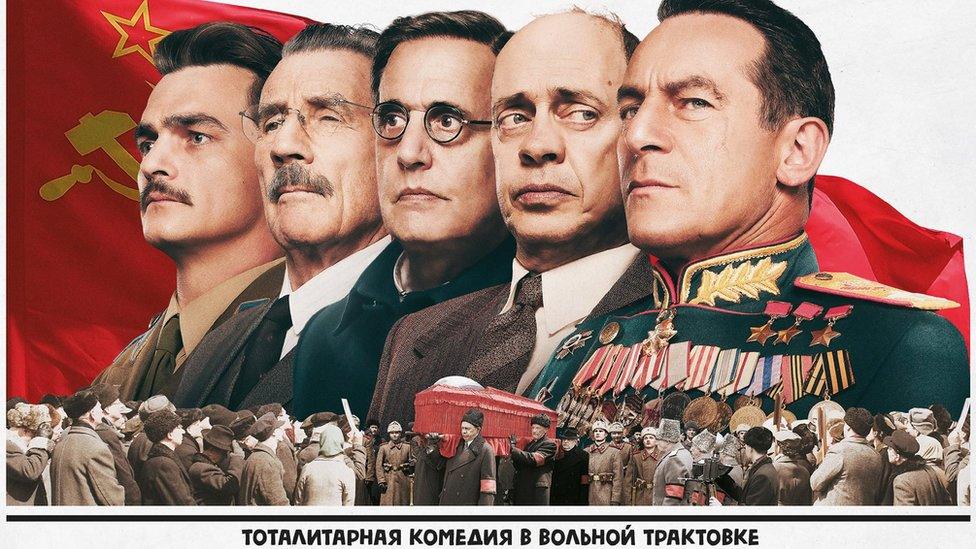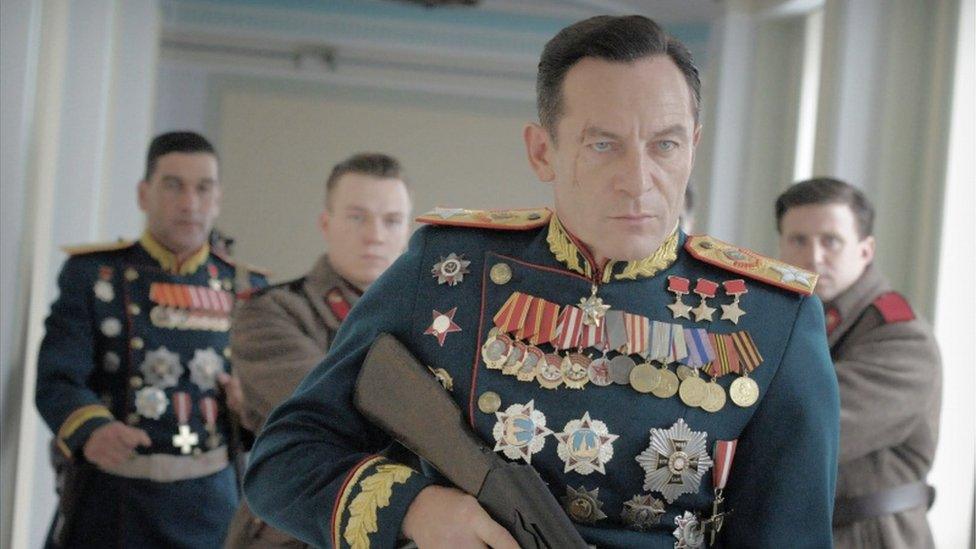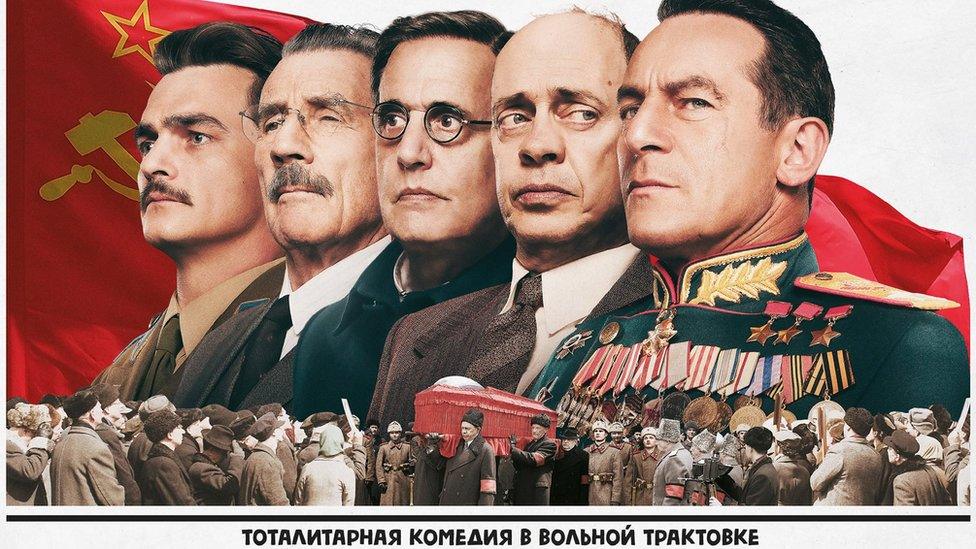Death of Stalin: Russian cinema drops film under pressure
- Published

The cinema was packed for the banned film's first screening in Moscow
A Russian cinema has stopped screening UK comedy The Death of Stalin, which was earlier banned by the government.
Moscow's Pioneer Cinema said it had been forced to act for "reasons beyond our control" and promised to refund customers who had bought tickets.
Hours earlier police visited the cinema, without giving any explanation.
The film was given its first screening at the cinema on Thursday, and tickets had been sold for showings until 3 February.
In a statement on Facebook (in Russian),, external Pioneer Cinema referred customers to the culture ministry for any further questions.
Russian officials this week condemned the comedy as insulting and revoked its release licence in Russia.
Pioneer Cinema was the only Russian cinema to go ahead with screening the film, which depicts a power struggle after the Soviet leader's death.
Earlier on Friday, AFP news agency reporter Ola Cichowlas tweeted photos of the police at the arts cinema.
Allow X content?
This article contains content provided by X. We ask for your permission before anything is loaded, as they may be using cookies and other technologies. You may want to read X’s cookie policy, external and privacy policy, external before accepting. To view this content choose ‘accept and continue’.

The film, directed by Armando Iannucci, is a satire of political intrigue in Moscow following Soviet dictator Joseph Stalin's death in 1953.
As a result, many of the main characters are real historical figures.

A Pioneer Cinema ticket for The Death of Stalin
The film was released in the UK in October, but it was banned by the Russian culture ministry after a private screening for officials and film directors in Moscow.
Pioneer Cinema is near central Moscow's Arbat district, an old quarter long associated with artists.
Russians who watched the film on Thursday gave broadly positive reactions to BBC Russian.
"It really is extremism to ban such a film," one woman said. Another woman said "this film has to be seen".
When asked if he had felt at all insulted by the film a man said "of course not".
Two elderly women who experienced Stalin's dictatorship told Reuters news agency they liked the film. Dina Voronova and Ella Katz were schoolgirls when Stalin died.

The Death of Stalin did not go down well with Russia's politicians and cinema elite
Under President Vladimir Putin there has been a revival of enthusiasm for Stalin, despite the 1930s Communist Party purges and mass terror that killed or incarcerated millions of people.
In February Russians will mark the 75th anniversary of the Soviet victory at the Battle of Stalingrad in 1943, which turned the tide of war against Nazi Germany. Many Russians admire Stalin for his role in that bitter struggle.
Russian Culture Minister Vladimir Medinsky denied that the film ban was an act of censorship. He said it was a question of morality.
"Many people of the older generation will regard the film as an insulting mockery of the Soviet past," he said.
The ministry says the cinema will be prosecuted for showing the comedy without a licence.
- Published24 January 2018

- Published23 January 2018

- Published12 September 2017
